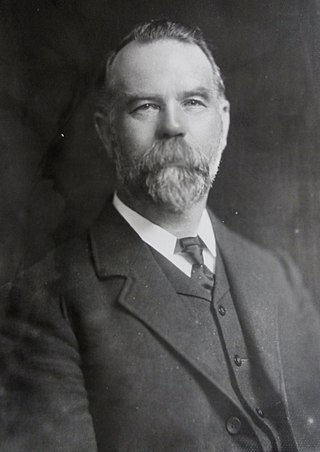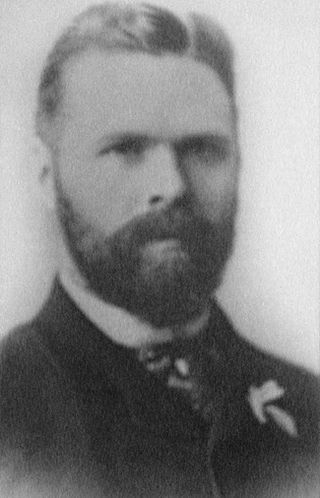| ||||||||||||||||
| Turnout | 1,516 | |||||||||||||||
|---|---|---|---|---|---|---|---|---|---|---|---|---|---|---|---|---|
| ||||||||||||||||
| ||||||||||||||||
The 1874 Wellington City mayoral election was the first election for the Mayor of Wellington to be conducted by public vote. The election was won by William Sefton Moorhouse, who defeated former mayor Joseph Dransfield.
| ||||||||||||||||
| Turnout | 1,516 | |||||||||||||||
|---|---|---|---|---|---|---|---|---|---|---|---|---|---|---|---|---|
| ||||||||||||||||
| ||||||||||||||||
The 1874 Wellington City mayoral election was the first election for the Mayor of Wellington to be conducted by public vote. The election was won by William Sefton Moorhouse, who defeated former mayor Joseph Dransfield.
Prior conventions dictated that Wellington's mayors were chosen by the city councillors from amongst themselves. In December 1874 an election open to the voting public was held with the intention of ratepayers selecting who would occupy the office of mayor for the 1875 term. [1] The election was held on 17 December and saw William Sefton Moorhouse defeat Joe Dransfield by a 2 to 1 vote margin.
The following table gives the election results:
| Party | Candidate | Votes | % | ±% | |
|---|---|---|---|---|---|
| Independent | William Sefton Moorhouse | 1,009 | 66.55 | ||
| Independent | Joe Dransfield | 507 | 33.46 | ||
| Majority | 502 | 33.11 | |||
| Turnout | 1,516 | ||||

William Sefton Moorhouse was a British-born New Zealand politician. He was the second Superintendent of Canterbury Province.

The Mayor of Wellington is the head of the municipal government of the City of Wellington. The mayor presides over the Wellington City Council. The mayor is directly elected using the Single Transferable Vote method of proportional representation. The current mayor is Tory Whanau, elected in October 2022 for a three-year-term.

Sir William Appleton was a New Zealand local body politician, advertising agent and leading company director. He was Mayor of Wellington for two terms from 1944 to 1950 after serving as a city councillor from 1931 to 1944. He was knighted in 1950.

Joseph Dransfield was the Mayor of Wellington, New Zealand, from 1870 to 1872. He was the first mayor of the reconstituted Wellington City since William Guyton was (briefly) mayor of the previous Wellington Borough in 1843.

George Allen was Mayor of Wellington, New Zealand, for three weeks in 1879.
Superintendent was the elected head of each Provincial Council in New Zealand from 1853 to 1876.
Westland was a parliamentary electorate in the West Coast of New Zealand from 1866 to 1868 and 1890 to 1972. In 1972 the Tasman and West Coast electorates replaced the former Buller and Westland electorates.

The Wairau by-election 1872 was a by-election held in the Wairau electorate during the 5th New Zealand Parliament, on 19 February 1872. The by-election was caused by the resignation of incumbent MP William Henry Eyes and was won by Arthur Seymour, who defeated Joseph Ward. Both candidates were prominent Marlborough politicians, and for both of them, this was their first attempt at election to the General Assembly.

The 21 June 1875 Wairau by-election was a by-election held in the Wairau electorate in the Marlborough Province during the 5th New Zealand Parliament. The by-election was caused by the resignation of incumbent MP Arthur Seymour and was won by Joseph Ward, who defeated William Sefton Moorhouse. Ward was a well-known politician in Marlborough. Moorhouse had political seniority over Ward and was at the time Mayor of Wellington, but had no personal connection to Marlborough.

The 1875 Wellington City mayoral election was the second election for the Mayor of Wellington held by public vote. The election was won by William Hutchison, who beat William Gisborne.

The 1913 Wellington City mayoral election was part of the New Zealand local elections held that same year. In 1913, elections were held for the Mayor of Wellington plus other local government positions including fifteen city councillors. David McLaren, the incumbent Mayor, was defeated by John Luke by a relatively narrow margin, becoming the new Mayor of Wellington. The polling was conducted using the standard first-past-the-post electoral method.

The 1876 Wellington City mayoral election was part of the New Zealand local elections held that same year. William Hutchison, the incumbent Mayor sought re-election and retained office unopposed with no other candidates emerging.

The 1950 Wellington City mayoral election was part of the New Zealand local elections held that same year. In 1950, elections were held for the Mayor of Wellington plus other local government positions including fifteen city councillors. The polling was conducted using the standard first-past-the-post electoral method.

The 1956 Wellington City mayoral election was part of the New Zealand local elections held that same year. In 1956, elections were held for the Mayor of Wellington plus other local government positions including fifteen city councillors. The polling was conducted using the standard first-past-the-post electoral method.
The 1914 Wellington City mayoral by-election was part of the New Zealand local elections held that same year. The polling was conducted using the standard first-past-the-post electoral method.

The 1877 Wellington City mayoral election was part of the New Zealand local elections held that same year to decide who would take the office of Mayor of Wellington.

The 1878 Wellington City mayoral election was part of the New Zealand local elections held that same year to decide who would take the office of Mayor of Wellington.

The 1879 Wellington mayoral election was part of the New Zealand local elections held that same year to decide who would take the office of Mayor of Wellington.

The 1885 Wellington City mayoral election was part of the New Zealand local elections held that same year to decide who would take the office of Mayor of Wellington.

The 1879 Wellington mayoral by-election was part of the New Zealand local elections held that same year to decide who would take the office of Mayor of Wellington.